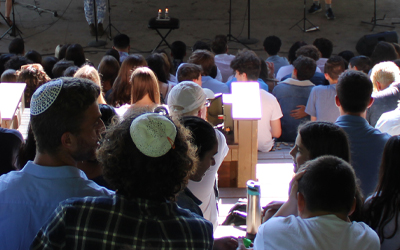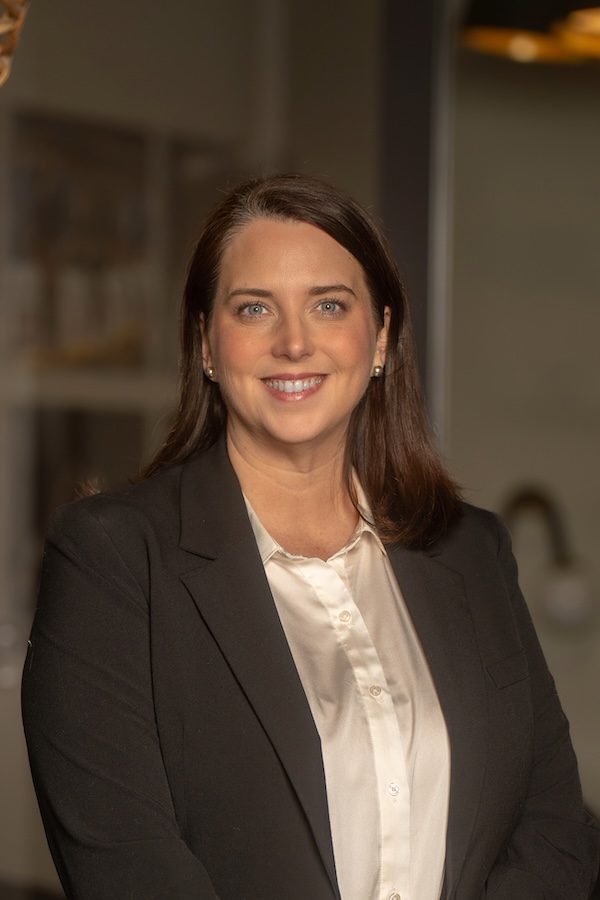Despite the country’s Jewish population of some 7.5 million, non-Orthodox Jewish day schools in the United States have for years faced a severe enrollment crisis, which a new initiative supported by Ronald Lauder is looking to address.
“The numbers have plunged since 2008. Many schools are struggling, and the problems are compounded by a lack of funding and support,” said Hadassa Halpern, who leads the Ronald S. Lauder Impact Initiative (LII), a new effort that seeks to reverse those declining enrollment trends in non-Orthodox Jewish day schools and implement new strategies for Jewish education and community engagement in North America.
“Out of 1.6 million Jewish children in the country, only 300,000 attend day schools. Of those, 88% are enrolled in Orthodox schools, leaving less than 5% of non-Orthodox Jewish children — who constitute the majority of American Jewish youth — in day schools today,” Halpern told eJewishPhilanthropy.
“While cities like New York, Los Angeles, Chicago, and cities in South Florida have higher numbers, many areas still see low enrollment,” she said.
To address this issue, LII launched a pilot program in five schools across four cities — Donna Klein Jewish Academy in Boca Raton, Fla.; Hillel Day School in Detroit, Mich., Schechter Boston and Milton Gottesman Jewish Day School of the Nation’s Capital and Charles E. Smith Jewish Day School in the Washington, D.C., area — to test and refine its methods. Though the pilot officially launched in January, it is now starting to take clearer shape, and the group aims to expand to more schools across North America each year.
Through the program, LII provides resources to the schools so that they can perform research to assess their needs and brainstorm ideas for the best way to expand. “LII doesn’t claim to have answers. Instead, it aims to be a catalyst to drive systemic change,” the organization said in a statement. LII will then help to support the schools as they implement their plans.
The initiative draws inspiration from the Lauder Foundation’s work in Eastern and Central Europe, where it supports over 30 Jewish educational institutions. “I have a dream that all Jewish children will be educated to become engaged and proud Jews,” Lauder said in a statement. “In Europe, I helped revitalize Jewish life by building and growing kindergartens, schools and camps. My dream in the U.S. is that Jewish parents will understand that they can make the choice today to secure their child’s Jewish future; Jewish day schools are the best option for creating strong Jewish identities and preparing the next generation of Jewish leaders. Nothing is more important for the future of our children, our grandchildren, and our people.”
The initiative is also being supported by the Israeli government through the Diaspora Affairs Ministry’s Aleph Bet initiative, which boosts Jewish education programs outside of Israel.
Fighting trends
Private Jewish day schools in the United States were once seen as the preferable option for families with means, seeing them as a way to get their children the type of education more likely to get them into a top-flight university. That is no longer the case.
“The American dream,” Halpern said, “is to be American first. For many parents, that means prioritizing public or private schools that offer pathways to Ivy League colleges over Jewish education. It’s not just about affordability. We’ve met people who send their kids to private schools but not Jewish schools,” she added.
A general move away from Jewish particularism by non-Orthodox American Jews has also contributed to this, according to professor Benjamin M. Jacobs from the Collaboratory: A Center for Jewish Education at George Washington University.
“Day schools were once appealing to parents who wanted their children in a close-knit community that reinforced Jewish identity, reflecting a post-Holocaust and post-1967 Zionist mentality,” Jacobs said. “However, today’s younger generations, including millennials and Gen Z, may not prioritize these identity and continuity aspects as highly. With rising intermarriage rates and changing focuses, day schools might not seem as essential to these parents. No matter how much funding is available, families will choose day schools only if they believe the education and community align with their values and needs.”
According to Jacobs, economics also plays an important role. “Schools that were growing very large through the 1990s might have lost even half of their enrollment through different economic downturns in the 2000s,” he said, noting there was an uptick in enrollment during the COVID-19 pandemic.
Paul Bernstein, the CEO of Prizmah, an umbrella group for Jewish day schools of all denominations, elaborated on the post-pandemic growth in Jewish day school enrollment: “Community was something that people really valued during the COVID experience. Our schools excel at providing that community. Although I initially expected the enrollment growth we saw in 2020, around 3%, to revert to the norm, our study found that more than 70% of those families decided to stay. Three years later, that number was still at two-thirds. This suggests a new pattern of continued growth.”
Bernstein added: “Our research showed that many families who previously chose not to enroll their children in Jewish day schools due to concerns about cost, perceived lack of diversity, or other reasons were reassessing their decision. They discovered that Jewish day schools offered an excellent education and a sense of community that they hadn’t previously recognized.”
LII is therefore looking to seize the opportunity that the current moment presents and turn that increased engagement into something lasting and significant, Halpern said. “There’s no excuse in 2024 that your child’s first introduction to Judaism is an antisemitic incident on campus, and unfortunately, for many people, that is the reality. We’re raising an entire generation that will continue to live this reality unless we do something about it. Mr. Lauder was speaking out well before anyone else,” Halpern continued, “He saw the threat of losing generations of American Jews and recognized that education was key.”
A bespoke approach
In each pilot city LII partners with a third-party research organization to conduct hypothesis-driven research into how parents in that specific market decide where to send their children for school. They then seek to create “archetypes” of different prospective parent segments and use these insights to craft interventions designed to better engage these families Jewishly through the day school. As fewer families rely on synagogues for Jewish engagement (one day school noted that more than 30% of its student body does not belong to a synagogue), schools have a unique opportunity to serve as strong community hubs. Each of these initiatives seeks to recenter the Jewish day school within the broader Jewish community.
Halpern described the initiative’s approach: “It’s about tailoring solutions to each community’s unique needs.”
Local steering committees, composed of stakeholders such as community leaders, admissions directors and representatives from various Jewish organizations from the community, are brought together in order to develop a holistic approach, with the understanding that low enrollment is not only a problem for the school but for the broader community, Halpern said.
She gushed that the quality of these committees is “off the charts.”
I’m intimidated when I go to these meetings. I see people who are throwing their comments, challenging everything we say,” Halpern said.
Each city involved in the initiative is assigned a dedicated consultant focused on that specific locale. Local funding of at least $200,000 for three years was required to ensure that the community is invested in the effort. “I need them to have skin in the game. It’s not a lot compared to what we’re putting in, but it gives them local investment,” Halpern noted. (Halpern refrained from disclosing how much LII would invest in each school. However, in a letter to stakeholders, the board president of the Charles E. Smith Jewish Day School said that LII would be allocating “approximately $3 million over the next three years to fund several CESJDS and Milton initiatives.”)
From this local funding, a “transformation manager” is hired. This role, combining change management with community liaison responsibilities, is crucial for bridging the national initiative with local schools.
“We don’t want to use someone’s time from the school for this. We need a younger leader with a lot of local knowledge who can become a liaison between us and the school community,” Halpern explained.
The transformation managers will be part of a cohort receiving professional development to enhance their skills. “The dream is that when we finish our intervention, these individuals will be integral to their local communities. They’ll use a broader vision to help build out the schools, not just from a school-based frame,” Halpern said.
Bernstein is supportive of LII’s initiative. “We have 306 schools in the U.S. and Canada in our network, and we want to see growth in that space,” he told eJP. “Given the barriers to enrollment that have been overcome in recent years, there is a large opportunity. Initiatives like the Lauder Impact Initiative are crucial because they pilot with schools, asking how to seize that opportunity. They’re going deep with schools and local partners to explore this. I’m confident we will learn a lot from these models, which can enhance what we’re already working on to grow enrollment, address affordability, and ensure our schools are excellent and perceived as such.”
LII also seeks to address the underlying factors behind low enrollment in Jewish day schools. Halpern pointed out that many parents prioritize public and non-Jewish private schools because they view them as pathways to more prestigious universities and broader societal integration.
Jacobs agreed: “A challenge for day schools over time is that in some communities, their costs are approaching those of elite private schools. Rising expenses for personnel and other factors mean they are now competing directly with well-established, prestigious private schools. Previously, day schools benefited from strong community support and lower tuition. Today, however, day schools face increased competition due to higher costs and shifting priorities.”
It is still too soon to determine how the events of Oct. 7 impacted trends, said Bernstein, but in light of rising antisemitism in the U.S., a recent Jewish Federations of North America survey found increased interest in enrollment in Jewish day schools in response to antisemitism and increased Jewish communal engagement more generally.
“We’re seeing both radical responses. The big question for our community right now is how we develop what comes next. The support for Israel and the fight against antisemitism are critical, but if American Jewry becomes fractured because we focus solely on the negative aspects, we will have failed. Investing in the positive future of our community is a crucial question. There is a lovely quote that Rabbi [Jonathan] Sacks would often say, which is, ‘If you want to win a war, you need an army. If you want to have civilization, you need schools.’”
By: Efrat Lachter
August 21, 2024







